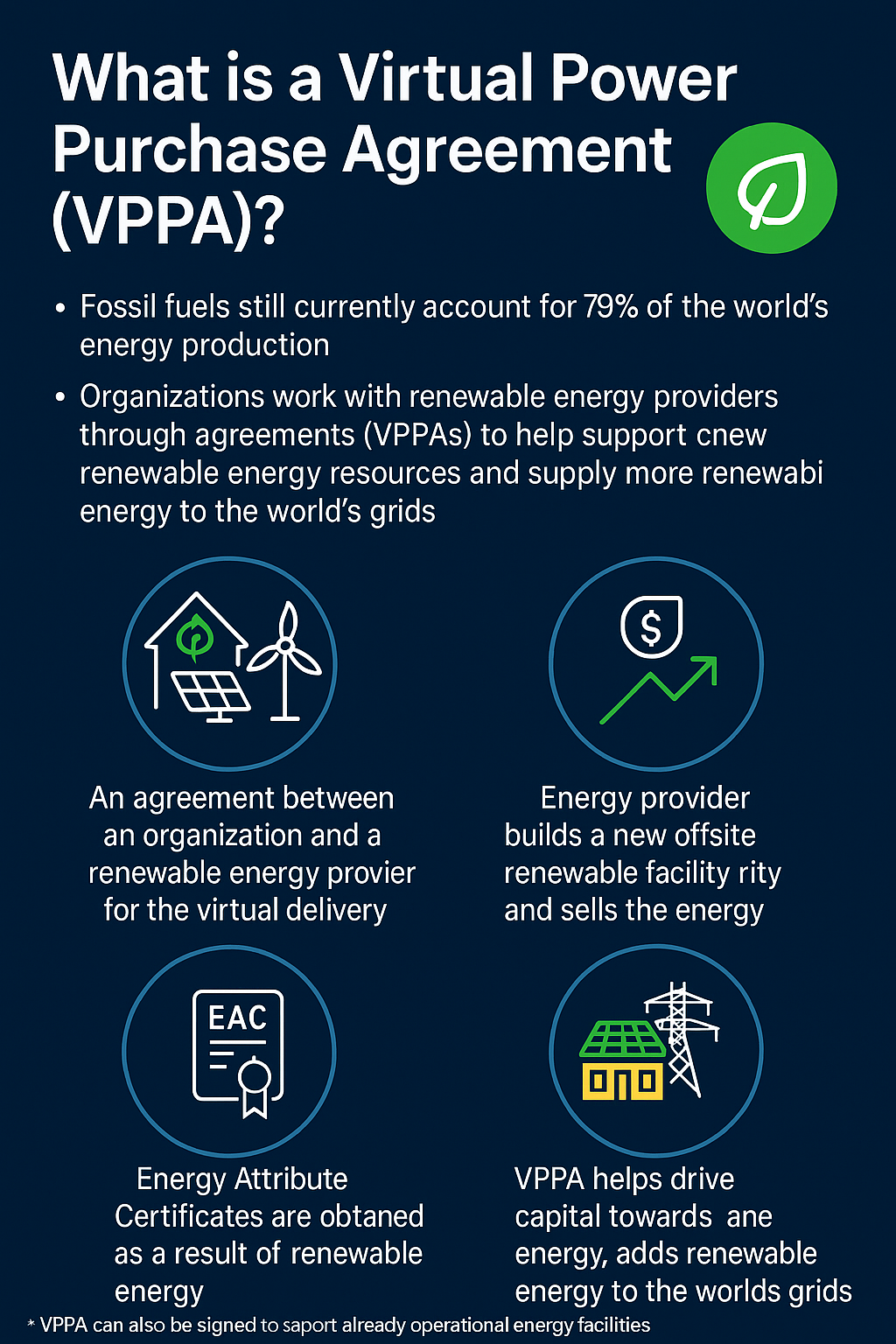A Virtual Power Purchase Agreement (VPPA), sometimes known as a ‘Contract for Differences‘, is a multiyear, bilateral contract for renewable energy from a specific power plant. It is an innovative financial tool in the renewable energy sector. It is only accessible in wholesale markets, and the provider does not physically transport the energy to the corporate buyer. The power generated by the facility is made accessible and sold to the reference electricity market. The corporate buyer does not physically get the energy produced by the plant, but rather receives it through its retailer.
The spot market price varies and differs from the price agreed upon by the corporate customer and supplier under the Power Purchase Agreement (PPA). The corporate buyer will get the difference from the provider for the energy generated by the plant if the PPA price is less than the market price. The corporate buyer will reimburse the supplier for the difference if the PPA price exceeds the market price. Renewable Energy Certificates (RECs), which attest to the energy’s environmentally friendly source, are given to the corporate customer. The ideal option for companies with several locations is virtual PPA, which lets corporate buyers retain their present retailer if they so want. This adds value and sustainability to the company.
Steps to Implement VPPA in India
Where we stand & Strategic Inputs
Although the idea is relatively new in India, the country offers enormous potential for VPPAs to support its clean energy transition due to its quickly growing commerce and industry (C&I) sector. As a result, there are still some questions about the Indian VPPA structure.
- Uncertain Regulatory Jurisdiction: In light of the unique structure and character of VPPA transactions, it is crucial to establish clear jurisdiction for matters handled under VPPAs in order to comprehend the regulatory framework that will apply to them.
- Bundled RECs in VPPAs: The existing regulatory framework for RECs primarily caters to unbundled power. VPPAs may include bundled RECs (like I-RECs) tied to new renewable energy. This supports real impact and reduces greenwashing risks. Clear rules are needed to ensure credible accounting and transfer.
- limitations of Open Access (OA) Rules: OA rules now allow smaller businesses to buy renewable energy by lowering the threshold to 100 kW. However, physical PPAs may still be unviable due to large project sizes. VPPAs can offer a solution by enabling multiple smaller businesses, even across locations, to aggregate demand and contract jointly.

